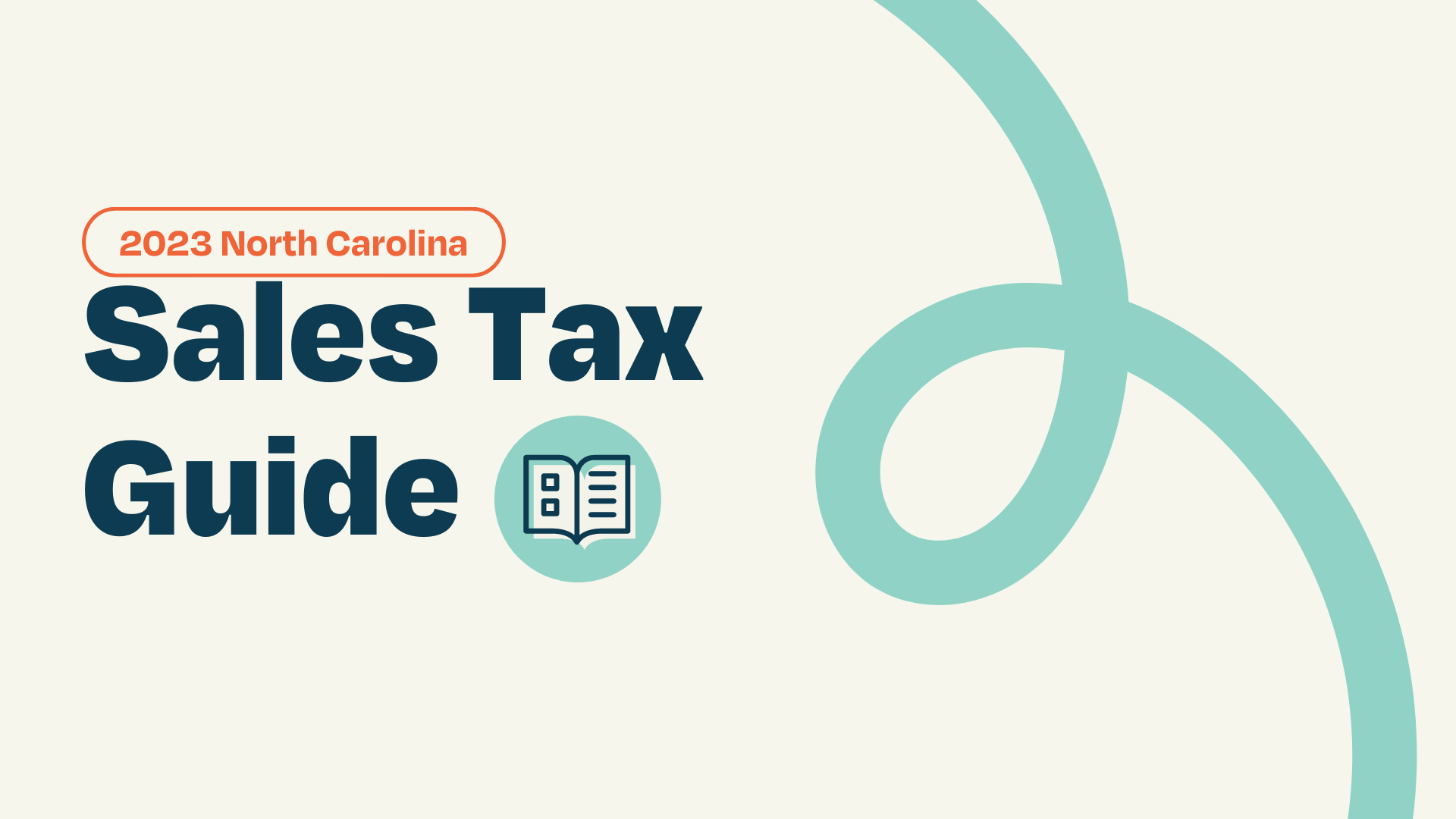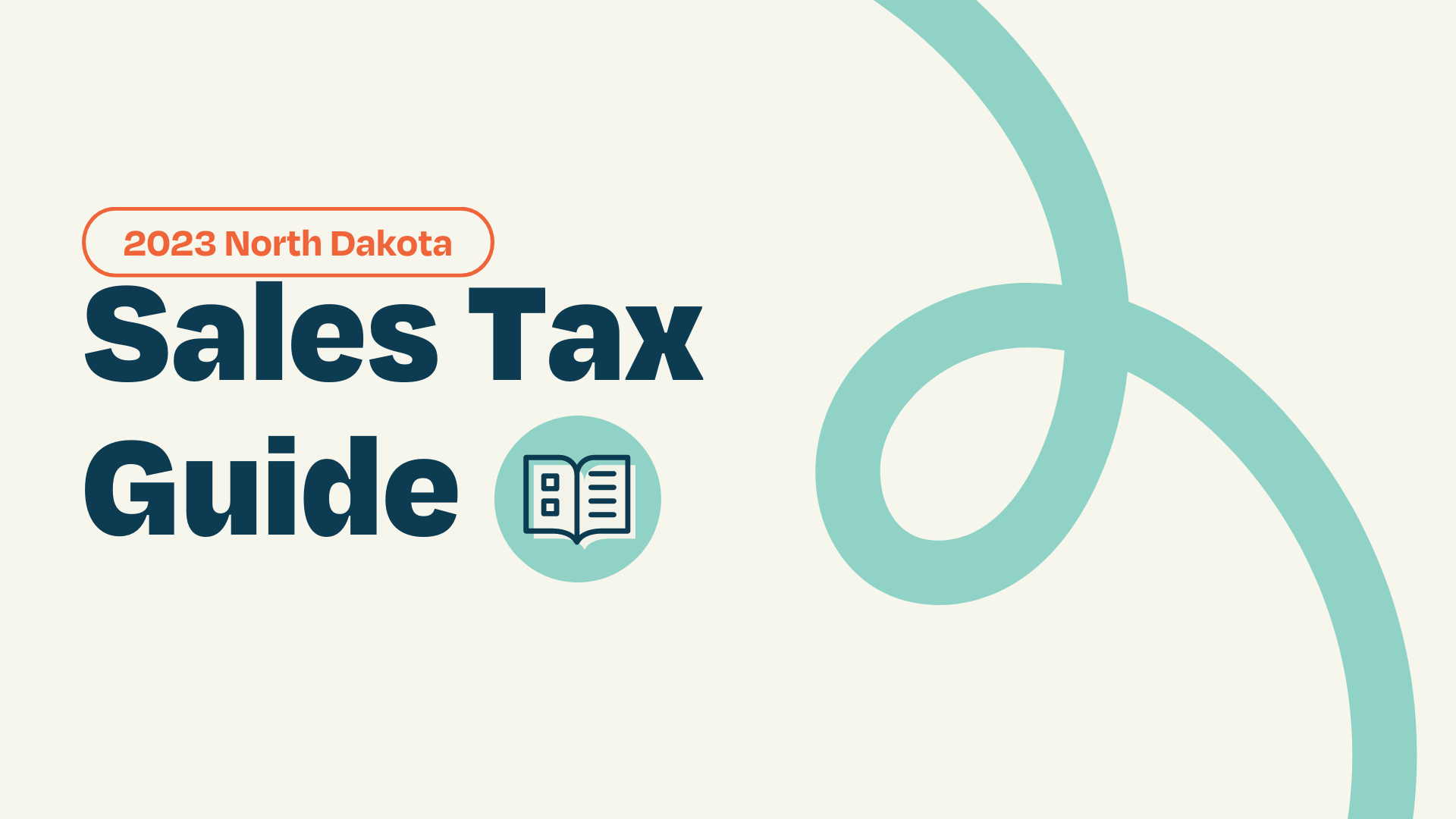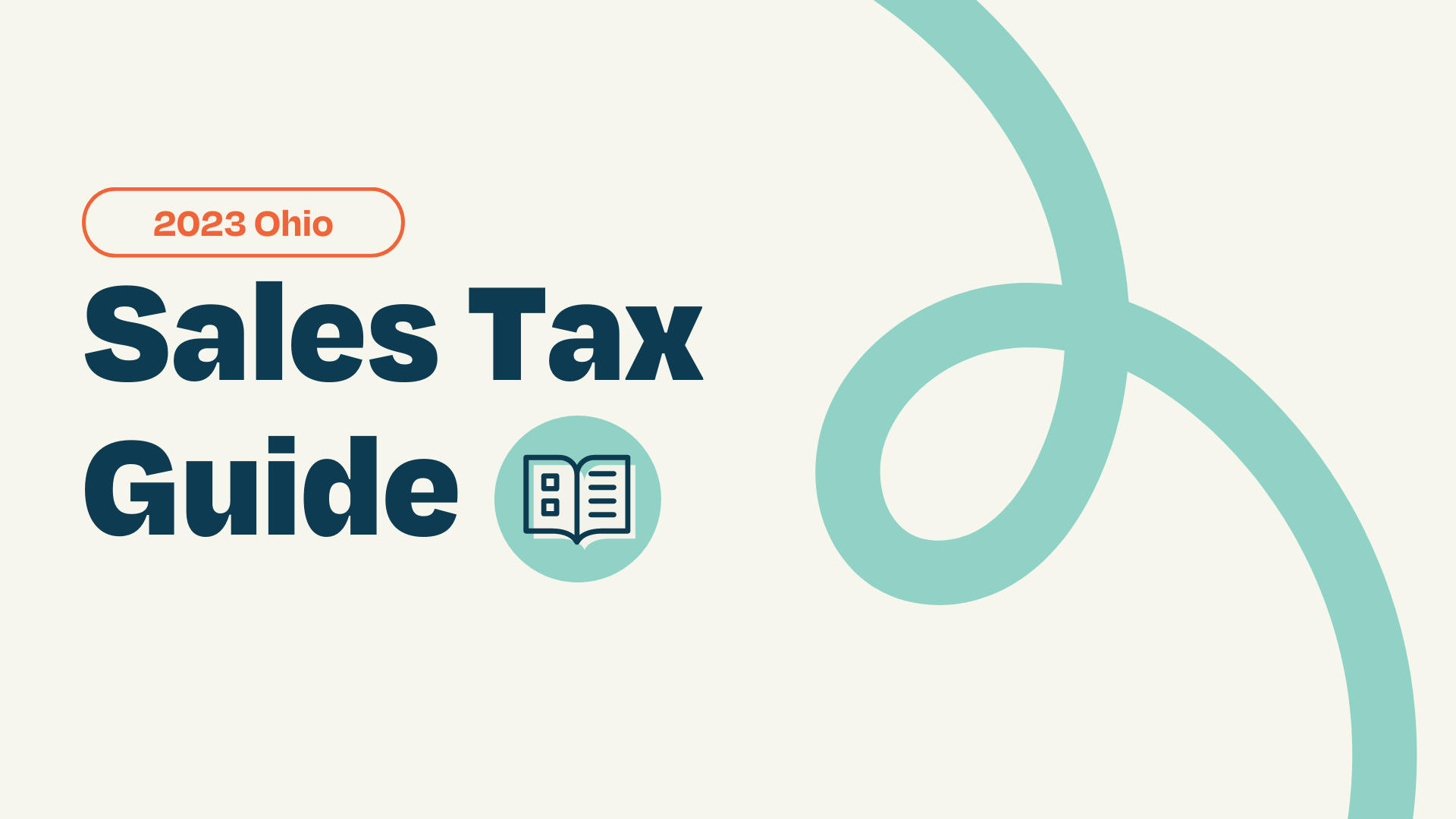1 min read
North Carolina 2023 Sales Tax Guide
North Carolina Sales Tax in a Word As a small business owner, navigating the world of sales tax can feel like a rollercoaster ride. One moment...

As a small business owner in the Garden State, you've got your hands full juggling the many tasks that come with running your venture. Among these responsibilities is the ever-important task of collecting, filing, and paying sales tax. But fear not, fellow entrepreneur! In this comprehensive guide, we'll walk you through the ins and outs of New Jersey sales tax, making the process feel like a stroll through the cherry blossoms at Branch Brook Park.
From understanding the basics of destination-based sales tax to navigating exemptions and filing frequencies, we've got you covered. We'll even share some valuable tips to avoid common pitfalls and keep your sales tax returns in tip-top shape. So, let's embark on this sales tax adventure together, and help your business flourish in the vibrant New Jersey business landscape.
|
Table of Contents |
Navigating sales tax requirements can be challenging, but knowing who to turn to for assistance and guidance can make all the difference. In this section, we'll outline the agency responsible for managing New Jersey sales tax and provide their contact information.
The New Jersey Division of Taxation is the agency responsible for administering and enforcing the sales tax laws in the state. They oversee the collection, filing, and payment of sales taxes, as well as providing assistance and resources to help businesses comply with the regulations.
If you have questions or need assistance regarding New Jersey sales tax, you can reach out to the Division of Taxation using the following contact information:
|
Mailing Address |
New Jersey Division of Taxation |
|
Phone Numbers |
(609) 292-6400 |
|
|
You can send your sales tax questions to the Division of Taxation via email at NJ.taxation@treas.nj.gov. Be sure to include your name, phone number, and a brief description of your inquiry in the email. |
|
Website |
The Division of Taxation's website offers a wealth of information and resources, including sales tax forms, payment options, and frequently asked questions. |
By keeping the New Jersey Division of Taxation's contact information handy, you'll know who to reach out to when you need guidance or assistance with your sales tax obligations in the Garden State.
Before diving into the specifics of sales tax collection and filing in New Jersey, it's essential to determine whether your business has nexus in the state. Nexus, also known as a "taxable presence," dictates whether you're required to collect, file, and remit sales tax in New Jersey. Let's explore the various ways nexus can be established in the state.
Sales tax nexus in New Jersey can be created through physical presence, economic activity, affiliate relationships, click-through activities, and marketplace facilitator transactions. We'll break down each type of nexus below.
Physical nexus occurs when a business has a tangible presence within the state, such as:
Owning or leasing an office, warehouse, or retail location
Having employees, sales representatives, or agents working in the state
Storing inventory in a fulfillment center or warehouse within the state
Economic nexus is established when a business reaches a certain threshold of sales or transactions within New Jersey, even if they don't have a physical presence. As of 2021, the economic nexus thresholds for New Jersey are:
More than $100,000 in gross revenue from sales of taxable goods or services, or
200 or more separate transactions for the delivery of taxable goods or services within the state during the current or prior calendar year
Note: These thresholds are subject to change, so it's essential to stay informed about any updates.
Affiliate nexus occurs when a business has a relationship with another entity in New Jersey that helps promote or facilitate the sale of the business's products or services. Examples of affiliate nexus relationships include:
A parent company, subsidiary, or sister company with a presence in the state
A business that uses a New Jersey-based affiliate to advertise, promote, or facilitate sales
Click-through nexus is established when a business has an agreement with a New Jersey-based affiliate that refers potential customers to the business's website through a link or promotional code. The business must generate more than $10,000 in sales through these referrals during the previous four quarterly periods.
Marketplace nexus occurs when an out-of-state business sells products or services through a marketplace facilitator (such as Amazon, eBay, or Etsy) that has nexus in New Jersey. Marketplace facilitators are responsible for collecting, filing, and remitting sales tax on behalf of sellers using their platform.
Yes, New Jersey has use tax laws in place. Use tax is the counterpart to sales tax and applies to purchases made outside of New Jersey for use, storage, or consumption within the state. Businesses and individual consumers are responsible for reporting and paying use tax on taxable items if sales tax was not collected at the time of purchase.
By understanding the different types of nexus and use tax laws in New Jersey, you can determine whether your business is required to collect, file, and remit sales tax in the state.
Once you've determined that your business has nexus in New Jersey, the next crucial step is to register for a sales tax license. In this section, we'll guide you through the registration process and discuss the associated costs, the need for a Federal Tax ID Number or EIN, and any additional agencies you might need to register with in New Jersey.
Registering for a sales tax license in New Jersey is a straightforward process that can be completed online or by mail. Here's a step-by-step guide to help you register your business for sales tax in New Jersey:
Gather necessary information: Before starting the registration process, make sure you have all the required information handy. This includes your business name, contact information, legal structure, Federal Tax ID Number or EIN, and details about your products or services.
Create an account on the New Jersey Division of Revenue and Enterprise Services website: Visit the New Jersey Division of Revenue and Enterprise Services website and create an account to begin the online registration process. This account will allow you to access, complete, and submit the required forms.
Complete the Business Registration Application (Form NJ-REG): Fill out the Business Registration Application (Form NJ-REG) online or download a paper version from the website. This form collects essential information about your business, such as the legal structure, ownership, and location, as well as your sales tax collection and filing responsibilities.
Submit the application: After completing Form NJ-REG, submit it electronically through your online account or by mailing the paper version to the address provided on the form. The processing time for online submissions is generally faster than for mailed applications.
Receive your New Jersey sales tax license: Once your application is approved, you'll receive a New Jersey sales tax license, also known as a Certificate of Authority. This certificate must be displayed prominently at your place of business.
Good news! Registering for a New Jersey sales tax license is free. There are no fees associated with the application or issuance of a sales tax license in the state.
Yes, you'll need a Federal Tax ID Number, also known as an Employer Identification Number (EIN), to register for a New Jersey sales tax license. The EIN is a unique nine-digit number assigned by the Internal Revenue Service (IRS) to businesses operating in the United States. If you don't already have an EIN, you can apply for one online through the IRS website.
Depending on your business activities and location, you might need to register with additional agencies in New Jersey. Some common agencies businesses may need to register with include:
New Jersey Department of Labor and Workforce Development: If you have employees in the state, you'll likely need to register with the Department of Labor and Workforce Development for unemployment insurance, workers' compensation, and state disability insurance.
New Jersey Department of Environmental Protection: Businesses involved in activities that impact the environment, such as manufacturing, construction, or waste disposal, may need to obtain permits or licenses from the Department of Environmental Protection.
Local municipalities: Depending on your business location, you may need to obtain additional licenses or permits from your local city or county government. Check with your local municipality to determine any specific requirements.
By following the steps outlined above and registering with the appropriate agencies, you'll be well on your way to collecting and remitting sales tax in New Jersey.
Now that you're registered and have your sales tax license in hand, it's time to start collecting sales tax on your taxable sales in New Jersey. In this section, we'll explore whether New Jersey is an origin or destination sales tax state, the types of sales subject to sales tax, and exemptions from sales tax, as well as what to do if your customer is exempt from sales tax or if you lose an exemption certificate.
New Jersey is a destination sales tax state, which means that sales tax rates are based on the location where the buyer receives the goods or services, rather than the location of the seller. When making sales to customers in New Jersey, you'll need to collect sales tax at the rate applicable in the customer's location, including any local sales taxes.
In general, the sale, lease, or rental of tangible personal property, specified digital products, and certain services are subject to sales tax in New Jersey. Examples of taxable sales include:
Furniture, appliances, and electronics
Clothing and accessories
Software and digital downloads
Professional services, such as consulting and interior design
Installation, repair, and maintenance services
Generally speaking, SaaS is not taxable in New Jersey. The New Jersey Department of Taxation defines SaaS as "a software licensing arrangement under which a customer subscribes to access a software application hosted by a vendor." Because SaaS is not delivered in a tangible medium, it is not considered taxable.
However, there are some exceptions to this rule. For example, if SaaS is used for gaming or entertainment purposes, it may be taxable. Additionally, if SaaS includes any prewritten software that is delivered electronically, it may also be taxable.
New Jersey offers several exemptions from sales tax, including:
Sales of prescription drugs and certain medical equipment
Sales of unprocessed food for human consumption (groceries)
Sales to qualified nonprofit organizations, such as schools and religious organizations
Sales of newspapers and periodicals
Sales of certain energy-saving products and services
The following groups are typically eligible for sales tax exemptions in New Jersey:
Nonprofit organizations with a valid exemption certificate
Government agencies
Resellers with a valid resale certificate
Certain contractors and developers working on eligible projects
If your customer is exempt from sales tax, you'll need to obtain a completed exemption certificate (Form ST-5) from the customer. Keep the certificate on file to support the tax-exempt sale in case of an audit. It's essential to review the certificate for accuracy and ensure it's appropriately signed and dated.
If you lose a New Jersey sales tax exemption certificate, you should request a new, completed certificate from your customer as soon as possible. If you're unable to obtain a new certificate and cannot support the tax-exempt sale, you may be held liable for the sales tax, plus any applicable penalties and interest, in the event of an audit.
Understanding the ins and outs of collecting sales tax in New Jersey will help ensure that you're in compliance with state laws and regulations. By staying informed about tax rates, eligible exemptions, and appropriate documentation, you'll be well-prepared to handle sales tax collection and remittance in the state.
Once you've mastered the art of collecting sales tax in New Jersey, it's time to file your sales tax return and pay the taxes you've collected. In this section, we'll discuss when to file and pay sales tax, how to file your return, potential penalties for late filing, and any sales tax incentives offered by New Jersey.
New Jersey requires sales tax returns to be filed and paid on a monthly, quarterly, or annual basis, depending on your business's total sales tax liability.
The filing frequency and dues dates are as follows:
|
Monthly Filing |
If your business collects more than $30,000 in sales tax annually, you must file and pay your sales tax by the 20th day of the month following the end of the reporting period. For example, your January sales tax return is due on February 20th. |
|
Quarterly Filing |
If your business collects between $500 and $30,000 in sales tax annually, you must file and pay your sales tax by the 20th day of the month following the end of the quarter. For example, your Q1 (January-March) sales tax return is due on April 20th. |
|
Annual Filing |
If your business collects less than $500 in sales tax annually, you must file and pay your sales tax by March 20th of the following year. |
If a New Jersey sales tax filing date falls on a weekend or holiday, the due date is extended to the next business day.
Filing a New Jersey sales tax return is a simple process that can be completed online or by mail. Here's a step-by-step guide to help you file your return:
Gather your sales tax records: Before starting the filing process, gather your records, including total sales, taxable sales, and sales tax collected for the filing period.
Log in to your account on the New Jersey Division of Taxation website: Visit the New Jersey Division of Taxation website and log in to your account. If you haven't already set up an account, you'll need to do so to file your sales tax return electronically.
Complete the Sales and Use Tax Return (Form ST-50/ST-51): Fill out the Sales and Use Tax Return (Form ST-50/ST-51) online or download a paper version from the website. This form requires information about your business, total sales, taxable sales, exempt sales, and the sales tax due for the filing period.
Submit the return and payment: After completing the form, submit it electronically through your online account or by mailing the paper version to the address provided on the form. Be sure to include your payment for the sales tax due. Online payments can be made using an electronic check (e-check) or credit card, while mailed payments should be made by check or money order.
Keep records of your sales tax returns: Maintain copies of your sales tax returns and supporting documentation for at least four years, as required by New Jersey law. These records may be requested in the event of an audit.
Remember, filing and paying your sales tax on time is crucial to avoid penalties and interest charges. Stay organized and keep track of your filing deadlines to ensure you remain compliant with New Jersey sales tax laws.
Penalties for late filing or payment of sales tax in New Jersey include:
Late filing penalty: A penalty of 5% of the tax due for each month the return is late, up to a maximum of 25%.
Late payment penalty: A penalty of 5% of the unpaid tax for each month the payment is late, up to a maximum of 25%.
Interest: Interest is charged on the unpaid tax and penalties from the original due date until the tax is paid in full. The interest rate is determined by New Jersey law and may change annually.
New Jersey offers several sales tax incentives to encourage business growth and development, including:
Urban Enterprise Zones (UEZ): Businesses located in designated UEZs may qualify for reduced sales tax rates, as well as other tax benefits and financial assistance.
By exploring these incentives, you may be able to reduce your sales tax liability and support the growth of your business in New Jersey.
Filing your New Jersey sales tax return doesn't have to be a daunting process. By following these five tips, you can sidestep common mistakes and ensure your return is accurate and timely:
Stay organized with your sales records: Regularly update and maintain accurate records of your total sales, taxable sales, exempt sales, and sales tax collected. This will make it easier to complete your sales tax return and help you avoid errors in reporting your sales figures.
Double-check your tax rates: Since New Jersey is a destination-based sales tax state, it's crucial to verify that you're using the correct tax rates for each sale based on the customer's location. Stay informed about any changes in state and local tax rates and adjust your calculations accordingly.
Know your filing frequency: Be aware of your filing frequency (monthly, quarterly, or annual) and the corresponding due dates. Mark these deadlines on your calendar to ensure you don't miss a filing and incur late penalties.
Keep track of exemption certificates: If you make tax-exempt sales, it's essential to collect and maintain valid exemption certificates from your customers to support the exempt status of those sales. Verify that each certificate is accurate, signed, and dated, and be prepared to provide them in case of an audit.
File and pay electronically: Filing and paying your sales tax electronically can help minimize errors and expedite the process. The New Jersey Division of Taxation website offers a secure and user-friendly platform for submitting your sales tax return and payment. Remember to save a copy of your submitted return for your records.
And there you have it, dear small business owner—a comprehensive guide to help you navigate the world of New Jersey sales tax. By understanding the ins and outs of filing and paying your sales tax returns, you'll be well-equipped to keep your business compliant and sailing smoothly through the Garden State's tax landscape.
Remember, staying organized, tracking exemptions, and keeping up with filing deadlines are essential ingredients for success in managing your sales tax responsibilities. Embrace the spirit of collaboration and partnership by leveraging the resources and incentives New Jersey offers to support your business's growth.
Now that you're armed with knowledge and confidence, it's time to continue your entrepreneurial journey, knowing that you've got your sales tax obligations under control. Here's to your success, and may your business thrive in the vibrant and dynamic New Jersey market!
|
Ready to work with a New Jersey sales tax expert? We've love to work with you! |
|
Alaska Sales Tax Guide (N/A) |
||||
|
Montana Sales Tax Guide (NA) |
||||
|
Oregon Sales Tax Guide (N/A) |
||||
|
Delaware Sales Tax Guide (N/A) |
||||
|
New Hampshire Sales Tax Guide (NA) |
||||
And don't forget to check out our blog about Economic Nexus, which serves as an invaluable resource for businesses who have sales that are subject to sales tax.
This blog is for informational purposes only and the information is accurate as of 2023-06-19. If you want legal advice on sales tax law for your business, please contact a State and Local Tax (SALT) professional. Keep in mind that sales tax regulations and laws are subject to change at any time. While we strive to keep our blog current, this blog possibly may be out of date by the time you review it.

1 min read
North Carolina Sales Tax in a Word As a small business owner, navigating the world of sales tax can feel like a rollercoaster ride. One moment...

North Dakota Sales Tax in a Word Embarking on the journey of running a small business in North Dakota is an exciting adventure filled with...

Ohio Sales Tax in a Word Embarking on the entrepreneurial journey in Ohio comes with a multitude of responsibilities, and understanding sales...